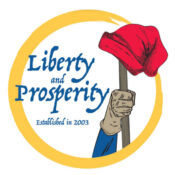Tuesday’s two state ballot questions are as important as any candidate. Ballot Question #1 would let state government to borrow another $125 million. After paying Wall Street “transaction fees” and other overhead, the money left over would fix up libraries in certain towns.
I love libraries. However, Amazon, digital books, and the internet make brick and mortar libraries less important than ever.
Meanwhile, “project labor agreements” and pay-to-play politics make government construction unaffordable, and unsustainable. We should be cutting costs, not borrowing money.
Ballot Question #2 would amend our state constitution yet again! It would put all money from environmental lawsuits into a special fund “to preserve the State’s natural resources”.
This sounds like a good idea. However, in the past state government money borrowed for “Green Acres” and “Open Space” to bulldoze trees, pave parking lots, and raise budgets and salaries at the Department of Environmental Protection. It also paid top dollar for worthless real estate owned by politically connected insiders. Nothing in that constitutional amendment would require any of this money received from polluters to clean up the properties involved in the lawsuits!
New Jersey taxes are unsustainable. That is because both Republicans and Democrats refuse to set priorities and cut costs. They borrow money and pay it back with years of future tax hikes. In fact “government bonding” is another way of saying “future tax hikes”. They also cater to special interests when they amend our state constitution to earmark money for narrow purposes that could either cut taxes or be better spent elsewhere.
The first step to change this is to vote “No” on both ballot questions. “Unfortunately, most voters will probably vote “Yes”. In the past, New Jersey voters approved 90% of all state ballot questions.*
*On November 7, 2017, roughly 60% of New Jersey voters did in fact vote “Yes” for the Public Question #1. Roughly 70% voted “Yes” for Ballot Question #2.
Back in 1896, Vilfredo Pareto, an Italian-French economist explained why this happens in his book, “The Political Economy”. In it, he gave this parable:
“Suppose that in a country of thirty million citizens, it is proposed under some pretext or other, to get each citizen to pay out one dollar a year, and to distribute the total amount among a group of thirty persons. Every one of the donors will give up one dollar a year; every one of the thirty beneficiaries will receive one million dollars a year.
“The two groups will differ very greatly in their response to this situation. Those who hope to gain a million a year will know no rest day and night. They will win newspapers over to their interest by financial inducements and drum up support from all quarters. A discreet hand will warm the palms of needy legislators. . .
“On the other hand, the despoiled are much less active. A great deal of money is needed to launch an election campaign. . . . The individual who is threatened with losing one dollar a year, even if he is fully aware of what is afoot, will not for so small a thing forego a picnic in the country, or fall out with useful or congenial friends, or get on the wrong side of the mayor. In these circumstances the outcome is not in doubt: the spoliators will win hands down.”
According to Pareto, democracy is not sustainable. People who take from the government get richer and stronger politically. People who pay taxes and get little from the government become weaker politically, and eventually go broke. Pareto predicted in the early 1900’s that the democracies of Europe collapse and be replaced by Communist or fascist dictatorships. In fact, by 1920, Pareto got so disgusted with the corruption of European democracies that he supported Mussolini as the only hope for saving them. Because of that, Pareto was disgraced, and his otherwise sound political and economic theories are no longer taught.
For years, Pareto’s “Political Economy” was not a problem in America. For nearly 150 years, our federal and state constitutions (and our political culture of limited government) restrained politicians from doing that massive “systemic corruption” here. But that is no longer the case in America today. Especially here in New Jersey.
Here in New Jersey, those people who will financially benefit from the $125 million loan package on the ballot are actively campaigning for a “Yes” vote on Ballot Question #1. The bureaucrats in the Department of Environmental Protection, the lawyers, contractors who build artificial sand dunes, solar panels, wind turbines and other profitable environmental projects are also campaigning for a “Yes” vote on Ballot Question #2.
Hardly anyone is campaigning for a “No” vote on either Public Question. As in Pareto’s parable, few voters will spend money, exert energy, or make enemies for “so small a thing” as paying a few dollars extra in taxes each year. Unfortunately, what we are really losing is our democracy. New Jersey cannot survive many more of these “Yes” votes.

